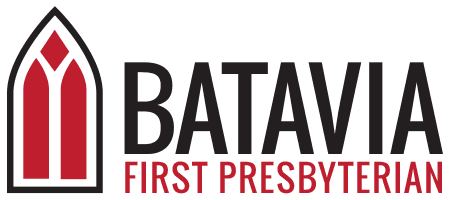
Down to Earth – Lifestyles
“Down to Earth Lifestyles”
Matthew 20:20-28
In the 1960s and 70s there was a Presbyterian pastor by the name of Charlie Shedd who became known for his writings on family and parenting issues. He even ended up publishing several books on these topics. His writings changed over time as he became a parent. Shedd tells how the title of his messages on parenting changed with his own experience of fatherhood. In his early years as a preacher before he was a father, he entitled his message, “How to Raise Your Children.” People came in droves to hear it. Then he had a child of his own, and it was a while before he gave that message again. When he did, he gave it a new name: “Some Suggestions to Parents.” Then he had two more children, and a number of years later he called it, “Feeble Hints to Fellow Strugglers.” Several years and children later, he seldom gave that talk, but when he did his title was, “Anyone Got a Few Words of Wisdom?”
One movie along the same lines, is “Cheaper by the Dozen.” Here is a scene when the husband, played by Steve Martin, wanted to give his wife the time to go on her book tour. He thought he could handle having the kids by himself. Here is the scene: https://youtu.be/ZWLQiviq7SM
Parents can totally relate to this as all of our ideals and skills are put to the most rigorous tests when we become parents ourselves. It is always easier to know things in theory. It is like when you go to school to learn a profession or you are in training for a job. In theory you learn how to teach if your goal is to be a teacher. You even learn about behavior issues and how to handle them. Yet, no amount of training can truly prepare us for the actual experience. The pressures of the job, the many variants that come into play, your own personal health and issues, and the circumstances of the world around you all come into play when you are in the experience itself. What usually helps is the experience itself. Putting into practice what you learned in theory is where the rubber meets the road. In other words, when the job becomes a lifestyle, a second nature, that is when you get to shine.
Handling the pressures of life without real enough practice and wisdom can be overwhelming. The same is true of our calling to be followers of Jesus Christ. We can learn about being loving, caring, humble, trusting and open in theory and when life is going well, but when it comes to practice, it can be very difficult to translate our head knowledge into action. We can take comfort that the early followers of Jesus struggled in the same way. In today’s Bible story we hear about an argument among the disciples about power and status. The disciples had been following Jesus for a while. They had learned about his ministry. They knew about his humility and commitment to service. He was training them to be like him. He spent a lot of time and energy trying to mold them into people who would fulfill God’s mission. Just before this episode he had taught a parable to help them understand a larger view of justice in the eyes of God where all were treated equally. They were getting to Jerusalem where he would come face to face with the powers of Rome. Yet, here a couple of them were seeking special positions of power.
What were the disciples missing? What practical wisdom did they need to learn?
In her commentary about the parallel passage in Mark, Barbara Brown Taylor explains that the problem was with their view of the world, “They seem to believe that the new world will be set up just like the old world, only with new leadership in place. The bad guys at the head table will be removed, their chairs will be fumigated and God’s new crew will be seated, with Jesus in the number one position and the most loyal members of his campaign staff on either side of him. Once this change has been accomplished, then finally! at last! the good people will commence to redeem the world from top to bottom, beginning from the top. The ultimate trickle-down effect.”
However, we know from experience and history that this is not how things work. Real and lasting change has to come from the human heart. That is why God takes the long view of history and of our human journey. Barbara Brown Taylor writes, “It doesn’t work that way, Jesus tells them one more time. The new world is not remotely like the old one. It turns the old one upside down. The number ones are not the powerful ones having their pictures taken at the head of the table; they are the quiet ones slipping in and out among the guests, refilling wine glasses and laying down clean silverware for the next course. The great ones are not the dignitaries to the left and right of the ruler; they are the slaves who are stirring pots in the kitchen, testing the temperature of the soup so that it is neither too hot nor too cold for the honored guests. James and John want Jesus to hurry up and become king of the world, but Jesus has other things on his mind. Has everyone been served? Is all the food on the table? Does anyone need anything? For the Son of Man came not to be served but to serve, and to give his life as a ransom for many.”
Since this kind of vision of leadership and the world is so hard to put into practice, we have to adopt lifestyles that train us in the values and ways of the Kingdom of God. We live in a world where so many bad things happen and the pressure of the job of living as the follower of Jesus in this kind of world is tremendous. Last week there was the story of the desecration of Jewish graves in the small Alsatian village of Westhoffen. The headstones were daubed with swastikas and anti-Semitic graffiti (https://www.nytimes.com/2019/12/04/world/europe/jewish-graves-france-desecrated.html). This was only the latest in a series of such acts of hates against Jews.
So the pressures of the real world can challenge our idealism and our notions of faith. When we see and experience the world as it is today, it is hard to let go of the mentality of power, wealth, and domination as the ways to change the world. What we need is to practice each day a lifestyle that is aligned with the Kingdom of God instead of the kingdoms of the world.
In 2012 Rev. Ed Bacon published a small but powerful book with the title 8 Habits of Love. In this book Bacon invites his readers to a journey of life that overcomes fear and other prisons that trap us. Here are the eight habits he outlines:
- The Habit of Generosity
- The Habit of Stillness
- The Habit of Truth
- The Habit of Candor
- The Habit of Play
- The Habit of Forgiveness
- The Habit of Compassion
- The Habit of Community.
What are some kingdom of God lifestyle habits that you can practice daily during this season? Which ones are really challenging for you?
Our daily actions and habits can build a foundation for a different way of life. As Richard puts it, “we don’t think ourselves into new ways of living, we live ourselves into new ways of thinking.” That is why it is essential to practice each day what we hope our lives would be, even if we fail. James and John did not give up on ministry. Jesus did not give up on them because they failed. Instead, he put them to work. They kept on practicing until practice became a way of life for them.
I would like to end with a video from James Lawson who was an important part of the training on nonviolence for the Civil Rights movement. He knew the importance of practice and a down to earth lifestyle. Here is what he had to say: https://youtu.be/2C_FGc9c9as. Amen.
